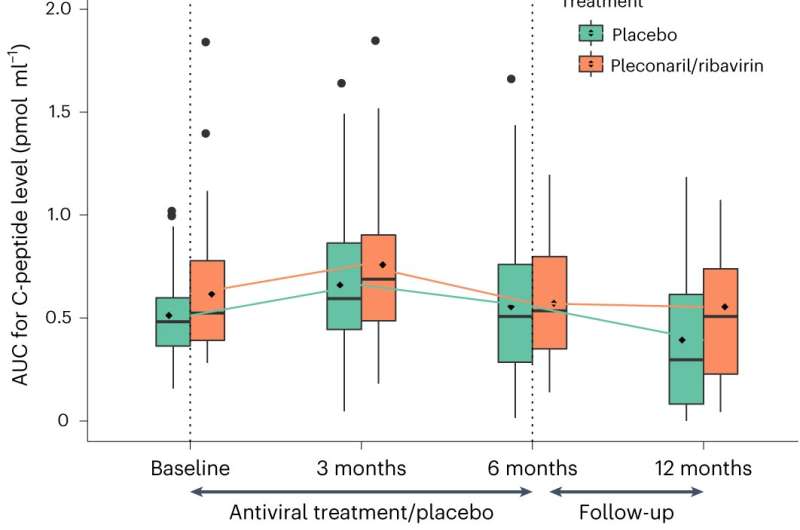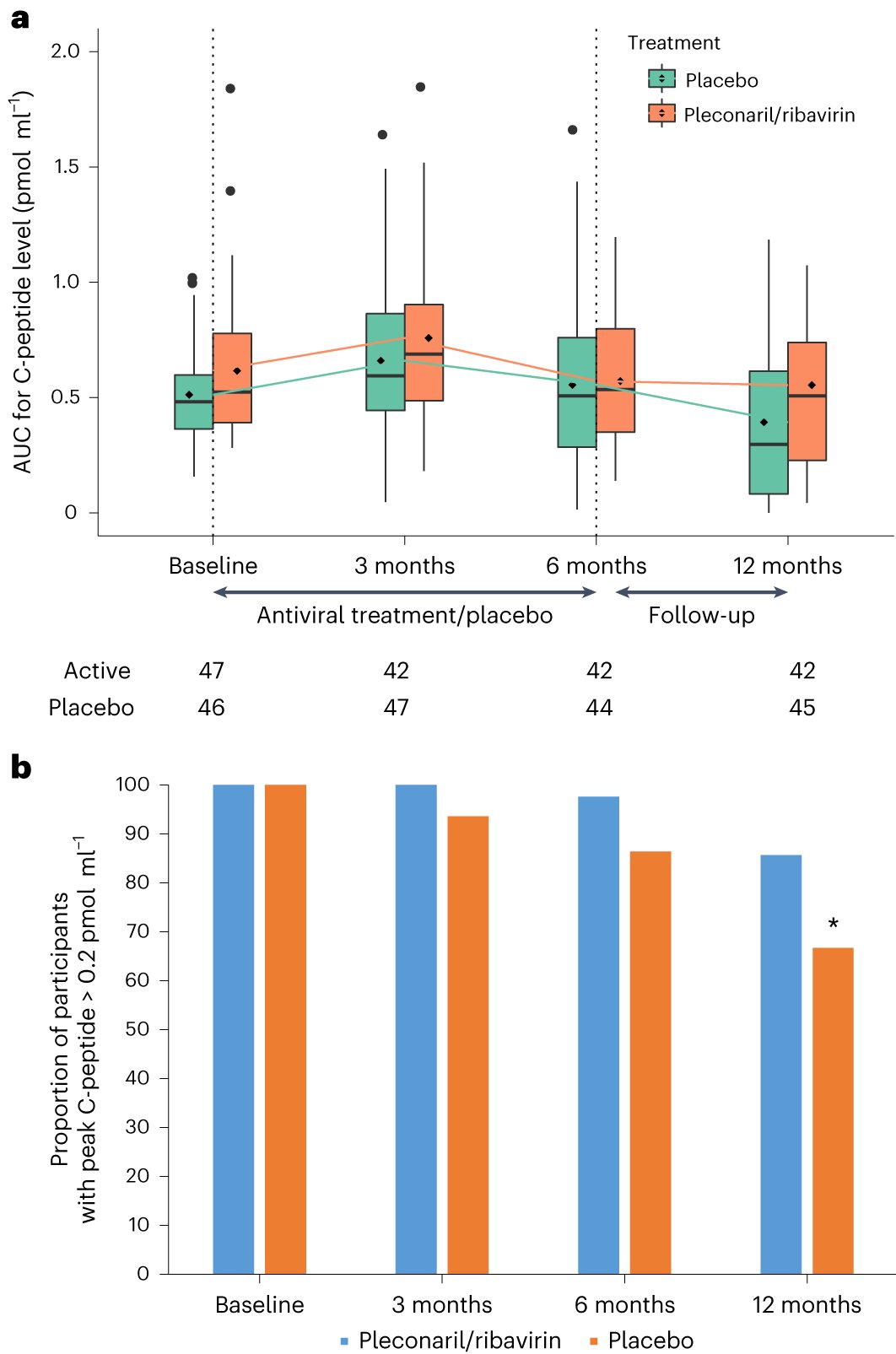
Norwegian researchers have previously demonstrated an association between diabetes and virus infection. New research shows that, among children with newly diagnosed type 1 diabetes (T1D), treatment with antiviral drugs could help preserve the production of insulin. The result shows that it is possible to slow down and eventually prevent type 1 diabetes.
The results were presented at the Annual Meeting of the European Association for the Study of Diabetes (EASD) in Hamburg, Germany, and were published in Nature Medicine.
Led by Knut Dahl-Jørgensen, M.D. and senior professor at University of Oslo (UiO), researchers from the Division of Pediatric and Adolescent Medicine at Oslo University Hospital (OUS) and the University of Oslo (UiO) is behind the study.
The study built upon research that previously established a link between enterovirus and T1D and investigated the effect of antiviral treatment on insulin production. Those recently diagnosed with T1D who received the antiviral medication maintained a higher level of insulin production after one year than those who did not take the medication, demonstrating that the treatment can slow the progression of T1D.
“We know through our previous research that a chronic enterovirus infection is present in the pancreas of those newly diagnosed patients we’ve studied,” said Knut Dahl-Jørgensen, M.D., senior professor at UiO. “We wanted to see if the virus was a trigger for developing type 1 diabetes and if we could slow the progression of the disease by addressing the virus. We’ve shown that antiviral medication can be effective for preserving insulin production, meaning it may be possible to treat and slow down type 1 diabetes with medication and maybe eventually prevent the disease.”
Diabetes is a serious disease and can lead to long-term complications such as blindness, kidney failure, heart attacks, and reduced lifespan. By stopping the virus before it destroys all the insulin-producing cells, patients may have a milder disease to manage, with more stable blood-sugar levels and fewer serious complications in the long run.
The study was a phase-II, placebo-controlled, double-blind, parallel-group trial, where 96 children aged 6–15 years, were randomly assigned to receive oral antiviral treatment with pleconaril and ribavirin, or placebo for six months, started less than three weeks after diagnosis of type 1 diabetes. The primary endpoint was residual insulin production at 12 months.
“The level of insulin production in the body was found to be significantly higher in the group that received antiviral medication compared to the group that received the placebo. These results provide a rationale to find optimal antiviral drugs to be used alone, or as part of combination treatment regimens, to rescue insulin producing cells at diagnosis of type 1 diabetes,” said Dahl-Jørgensen.
“Further studies should be done at an earlier stage in the disease process to evaluate whether antiviral treatment could delay the progression of beta-cell damage leading to clinical type 1 diabetes. This study supports that a low-grade persistent virus infection is an underlying disease mechanism, and that type 1 diabetes may be prevented by development of new vaccines.”
More information:
Lars Krogvold et al, Pleconaril and ribavirin in new-onset type 1 diabetes: a phase 2 randomized trial, Nature Medicine (2023). DOI: 10.1038/s41591-023-02576-1
Journal information:
Nature Medicine
Source: Read Full Article
